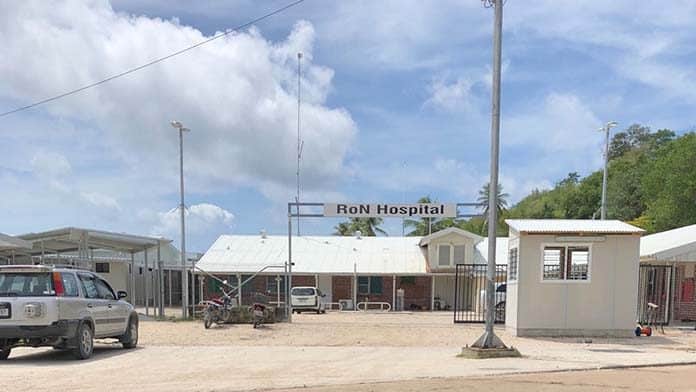Trump’s “zero tolerance” refugee policy brought a storm of protest across the United States, ultimately forcing Trump to back down from his child separation policy. As the protests gathered momentum, the demand to abolish ICE (Immigration and Customs Enforcement), the agency that captures and deports so-called aliens and asylum seekers, began to be raised.
For months on this side of the Pacific, Home Affairs Minister Peter Dutton had refused to bring a dying Afghan refugee to Australia for palliative care. When the issue became public, outrage grew. Over 2000 doctors, and 25,000 others, signed petitions to bring “Ali” to Australia
Then, on the same day that Peter Dutton was on the front page of The Australian warning against a “single act of compassion to refugees”, Ali was transferred from Nauru to a Gold Coast hospital.
Right to the last minute, Dutton had insisted that Ali would not be brought here, but the protests and petitions finally won his transfer from Nauru to Australia.
The lesson from both sides of the Pacific—that protest works—is going to be needed by the refugee movement in the weeks and months ahead.
Albanese falls into line
For months now, Labor leader Bill Shorten has spelled out Labor’s position on offshore detention. At the Victorian State Labor conference Shorten said, “A Labor government will stop the boats.” He has also said repeatedly, perhaps most publicly on Q&A in June, that a future Labor government would not place a time limit on offshore detention.
Now Anthony Albanese, the parliamentary leader of the Labor left, has fallen into line. Speaking to Sky News in July, he agreed that the Coalition’s policies “have stopped the boats”. He also rejected calls to put a time limit on offshore detention, and repeated that asylum seekers who came by boat would not be allowed to settle in Australia.
At the national conference in 2015, Albanese had opposed turning back boats, “because he himself could not turn back an asylum seeker boat at sea.” Now, it seems that is no longer a problem for Albanese.
While turnbacks separated Labor’s left and right at the last conference, Albanese at least is now singing from the same song sheet.
Albanese’s re-positioning has shocked some of the Labor left, but the differences were always minor. (Even in 2015 Albanese said that, “Everyone in Labor wants to make sure there aren’t turn-backs because there aren’t boats.”). It seems to be designed to be a pre-emptive strike against moves to debate offshore detention at December’s Labor national conference.
But it also opens a bigger gap between the Labor leaders and the majority of the rank-and-file that oppose existing Labor policy.
There will still be a debate at Labor’s national conference. But it is very clear that Labor’s leadership is determined to maintain offshore detention on Nauru. The 2016 PNG Supreme Court ruling means that asylum seekers can’t be sent to Manus Island under existing laws.
But both Shorten and Albanese also say that Labor will find third countries for the refugees and asylum seekers on Manus and Nauru.
Albanese said he believed Australia could end “long-term indefinite detention”. Shorten told Q&A, “I believe a Labor government can actually make sure that we don’t have to have people on Manus and Nauru, because we will prioritise resettling people.”
Labor will accept New Zealand’s offer to resettle 150 a year. But there is no “third country” that will accept the hundreds of people that are excluded from the US deal.
Labor’s inability to resettle refugees from Manus and Nauru will further expose the tensions between a Labor government and the expectations of Labor supporters.
Protests around the country will mark 19 July, the shameful fifth anniversary of Labor establishing the Pacific Solution II, that the Liberals now so viciously impose.
The same Victorian branch of the CFMEU that moved to prevent a resolution to end offshore detention being debated at the state Labor conference in May, has now endorsed the Melbourne rally, at odds with federal Labor policy, to end turnbacks and close Manus and Nauru.
To “bring them here”, this is kind of grassroots opposition we will need to keep building over the coming months. Labor can no more resolve Manus and Nauru than the Liberals. But the protests and campaigning to get Ali to Australia shows the possibility of the campaign that can both take the fight to Turnbull, and to a future Labor government—and win.
By Ian Rintoul






